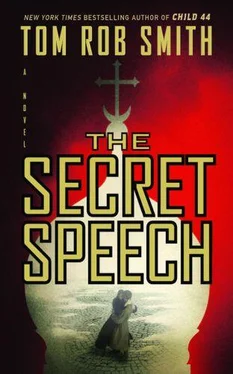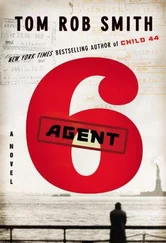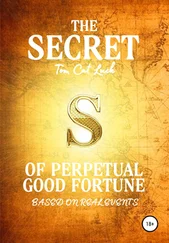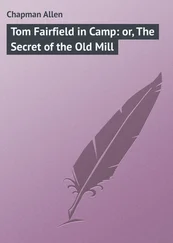Tom Smith - The Secret Speech
Здесь есть возможность читать онлайн «Tom Smith - The Secret Speech» весь текст электронной книги совершенно бесплатно (целиком полную версию без сокращений). В некоторых случаях можно слушать аудио, скачать через торрент в формате fb2 и присутствует краткое содержание. Жанр: Триллер, на английском языке. Описание произведения, (предисловие) а так же отзывы посетителей доступны на портале библиотеки ЛибКат.
- Название:The Secret Speech
- Автор:
- Жанр:
- Год:неизвестен
- ISBN:нет данных
- Рейтинг книги:5 / 5. Голосов: 1
-
Избранное:Добавить в избранное
- Отзывы:
-
Ваша оценка:
- 100
- 1
- 2
- 3
- 4
- 5
The Secret Speech: краткое содержание, описание и аннотация
Предлагаем к чтению аннотацию, описание, краткое содержание или предисловие (зависит от того, что написал сам автор книги «The Secret Speech»). Если вы не нашли необходимую информацию о книге — напишите в комментариях, мы постараемся отыскать её.
The Secret Speech — читать онлайн бесплатно полную книгу (весь текст) целиком
Ниже представлен текст книги, разбитый по страницам. Система сохранения места последней прочитанной страницы, позволяет с удобством читать онлайн бесплатно книгу «The Secret Speech», без необходимости каждый раз заново искать на чём Вы остановились. Поставьте закладку, и сможете в любой момент перейти на страницу, на которой закончили чтение.
Интервал:
Закладка:
Hearing the creak of wood, Leo looked up. At the top of the stairs Sinyavksy stepped out of the command barracks, wrapped in reindeer furs so thick they doubled his size. The coat was as decorative as it was practical, hung across his shoulders with such aplomb the implication was that he’d killed the animals in a heroic battle. The theatricality of his appearance would surely have been ludicrous in any other man and in any other place. Yet here, on him, it seemed appropriate. He was emperor of this place.
Unlike the other prisoners, whose survival instincts were more sharply tuned, having spent several months on trains and in transit camps, Leo stared openly at the commander with reckless fascination. Belatedly remembering that he was not a militia officer anymore, he turned away, redirecting his gaze down at the ground. A convict could be shot for making eye contact with a guard. Though regulations had changed in theory, there was no way of knowing if those changes had been implemented.
Sinyavksy called out:
— You!
Leo kept his eyes fixed down. He could hear the stairs creaking as the commander descended from the elevated platform, reaching the ground, footsteps crunching across snow and ice. Two beautifully tailored felt boots stepped into his frame of view. Even now Leo kept his eyes down like a scolded dog. A hand gripped his chin, forcing him to look up. The commander’s face was lined with thick dark grooves, skin like cured meat. His pupils were tinged with an iodine yellow. Leo had made a rudimentary mistake. He’d stood out. He’d been noticed. A common technique was to make an example out of a convict upon arrival to show the others what they could expect.
— Why do you look away?
Silence, Leo could feel the other prisoners’ relief emanating from them like heat. He’d been picked, not them. Sinyavksy’s voice was peculiarly soft:
— Answer.
Leo replied:
— I did not wish to insult you.
Sinyavksy let go of Leo’s chin, stepping back and reaching into his pocket.
Anticipating the barrel of a gun, it took Leo several seconds to adjust. Sinyavksy’s arm was outstretched — yes — but his palm was turned up to the sky. On the flat of his hand were small purple flowers, each no bigger than a shirt button. Leo wondered if this was a moment’s insanity as a bullet passed through his brain, a confusion of images, memories smashed together. But time passed, the delicate flowers were fluttering in the wind. This was real.
— Take one.
Was it a poison? Was he to writhe in pain in front of the others? Leo didn’t move, arms flat by his side.
— Take one.
Obedient, powerless, Leo reached out, his thumb and forefinger trembling, stumbling across Sinyavksy’s palm as if they were the legs of a drunken man, almost knocking the flowers off. Finally, he took hold of one. It was dried, the petals brittle.
— Smell it.
Once again, Leo did nothing, unable to comprehend his instructions. They were repeated:
— Smell it.
Leo lifted it to his nose, sniffing the tiny flower, smelling nothing. There was no scent. Sinyavksy smiled:
— Lovely, yes?
Leo considered, unsure if this was a peculiar trap:
— Yes.
— You love it?
— I love it.
He patted Leo on the shoulder:
— You shall be a flower grower. This landscape looks barren. But it is full of opportunities. There are only twenty weeks in the year when the topsoil thaws. During those weeks I allow all prisoners to cultivate the land. You can grow whatever you like. Most grow vegetables. But the flowers that grow here are quite beautiful, in their modest way. Modest flowers are often the prettiest, don’t you agree?
— I agree.
— Do you think you will grow flowers? I don’t want to force it upon you. There are other things you can do.
— Flowers… are… nice.
— Yes they are. They are nice. And modest flowers are the nicest.
The commander leaned close to Leo, whispering:
— I shall save you a good patch of soil. Our secret…
He squeezed Leo’s arm affectionately.
Sinyavksy stepped away, addressing the entire line of prisoners, his hand outstretched, displaying the small purple flowers:
— Take one!
The prisoners hesitated. He repeated the order:
— Take! Take! Take!
Frustrated with their sluggish response, he threw the flowers into the air: purple petals fluttering around their shaven heads. Reaching into his pocket, taking another handful he threw them again, over and over, showering them. Some men looked up, tiny purple petals catching in their lashes. A few men were still looking at the ground, no doubt convinced this was a trick of the most devious kind that only they had passed.
Still holding his flower, balanced in the cup of his hand, Leo didn’t understand, he couldn’t make sense of it — had he read the wrong file? This man with pockets full of flowers couldn’t be the same man who had ordered prisoners to work while their comrades’ bodies rotted beside them, couldn’t be the commander who’d supervised the Fergana Canal and the Ob River railway. His supply of flowers finished, the last petals spinning to the snow, Sinyavksy continued his introduction speech:
— These flowers grew out from the meanest, cruelest soil in the world! Beauty from ugliness: that is our belief here! You are not here to suffer. You are here to work just as I am here to work. We are not so different, you and I. It is true that we will do different kinds of work. Perhaps your work is harder. Yet we will work hard together, for our country. We will improve ourselves. We will become better people, here, in this place where no one expects to find goodness.
The words seemed heartfelt. They were uttered with genuine emotion. Whether because the commander was racked with guilt, or remorse, or fear at being judged by the new regime, it was quite obvious that he’d gone insane.
Sinyavksy gestured to the guards; one hurried toward the mess hall barracks, returning moments later with several prisoners, each carrying a bottle and a tray of small tin cups. They poured a thick, dark liquid into the cups, offering one to each convict. Sinyavksy explained:
— The drink, khvoya , is an extract of pine needle combined with rose water. Both are rich in vitamins. They will keep you healthy. When you are healthy you are productive. You will lead a more productive life here than you did outside the camp. My job is to help you become a more productive citizen. In so doing, I become a more productive citizen. Your welfare is my welfare. As you improve, so do I.
Leo hadn’t moved. He hadn’t changed position. His hand was still outstretched. A breeze caught the flower and blew it to the ground. He bent down and picked it up. When he stood up, the prisoner with the pine needle concentrate had arrived. Leo took hold of the small tin cup, his fingers briefly touching the fingers of the prisoner. For a split second they were strangers, and then recognition sparked.
SAME DAY
LAZAR’S EYES APPEARED ENORMOUS, black-rock moons with a red sun blazing behind them. He was thin, his body boiled down to a concentrate of its former self — his features starker, more pronounced, skin stretched tight except for the left side of his face where his jaw and cheek had slipped, as though they’d been made from wax and left too close to the fire. Leo reasoned he must have suffered a stroke before remembering the night of the arrest. His fist clenched involuntarily — the same fist he’d used to punch Lazar again and again until his jaw had turned soft. Surely seven years was long enough to heal, long enough for any injury to heal. But Lazar would have received no medical treatment in the Lubyanka. The interrogators might even have made use of the injury, twisting the broken bone whenever his answers were unsatisfactory. He would’ve received limited treatment in the camps, no reconstructive surgery — the idea was fanciful. That impulsive, senseless act of violence, a crime Leo had forgotten about as soon as his knuckles ceased being sore, had been immortalized in bone.
Читать дальшеИнтервал:
Закладка:
Похожие книги на «The Secret Speech»
Представляем Вашему вниманию похожие книги на «The Secret Speech» списком для выбора. Мы отобрали схожую по названию и смыслу литературу в надежде предоставить читателям больше вариантов отыскать новые, интересные, ещё непрочитанные произведения.
Обсуждение, отзывы о книге «The Secret Speech» и просто собственные мнения читателей. Оставьте ваши комментарии, напишите, что Вы думаете о произведении, его смысле или главных героях. Укажите что конкретно понравилось, а что нет, и почему Вы так считаете.












